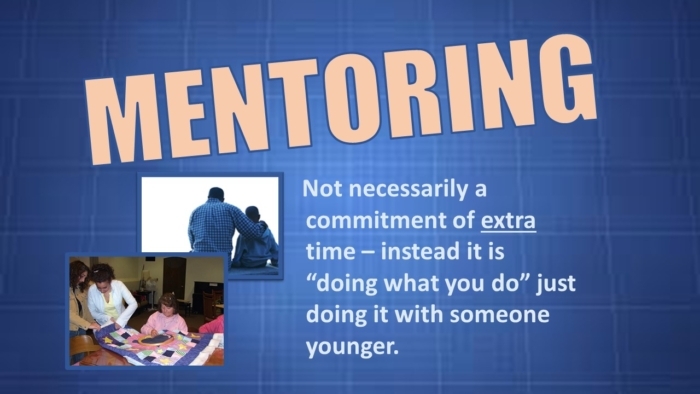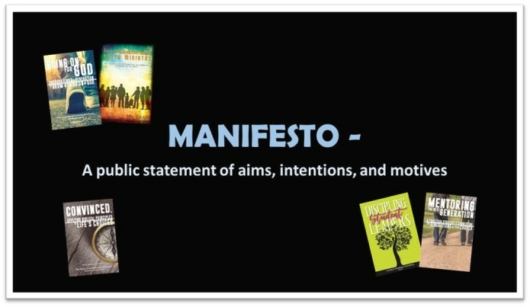Mentoring During the Pandemic: Making Inter-Personal Connections in a Time of Social Distancing

In the early days of this current Coronavirus situation, the World Health Organization suggested a plan to help thwart the spread of what became a world-wide health crisis, the contagious proliferation of COVID-19. Their plan was to limit person-to-person contamination by what is known as social distancing, or “to slow down the spread of infectious diseases and avoid overburdening healthcare systems, particularly during a pandemic… by closing schools and workplaces, isolation, quarantine, restricting movement of people and the cancellation of mass gatherings” (https://en.wikipedia.org/wiki/Social_distancing).
Of course, the practice of social distancing is really nothing new. The Bible, and especially the Old Testament (Leviticus 13 – 14, and other places), teaches about the terrifying disease of “leprosy” – where infected people were placed in literal isolation away from the general population of society.
It’s important to remember that the current instruction to segregate from other people is not accurately “social” distancing in today’s technological world. It’s probably more like “physical” distancing. We are being told to stay at least 6’ away from other individuals, not to gather in large or even small groups; and in some areas, we have been instructed to “shelter in place”, to stay in our homes, and not go out at all.
But we still can make connections with other people. Ours is not really a matter of total social isolation. We can communicate – and that provides the opportunity to minister to other believers and to share the Gospel with people who do not know Christ. It’s probably just a matter of intentionality, effort, and creativity.
Ministry leaders have had to answer a key question about what is becoming the new normal for believers, churches, and other ministries during the current practice of staying away from other people.
How can we do outreach and ministry in a culture of social distancing?
Of course, we can champion the amazing ways some churches are utilizing technology to accomplish their mission right now. Watching the ingenuity of innovative ministry leaders to apply Google, Facebook, Zoom, Go-To-Meeting, Instagram, and other media platforms to communicate God’s Word, to minister to others, and to reach out to our communities is absolutely incredible.
But we must not forget that “low tech” ways exist to reach out and encourage others too. We must keep in mind that there are practical ways to make personal connections with the people we want to mentor even during times of social distancing.
Here are some basic principles of mentoring during a pandemic that may be worth considering:
- Mentoring relationships may mean more during times of crisis and difficulty.
There’s something quite special when a mentor reaches out during a difficult time. It means they are thinking about you – that they are concerned and that they care about what you are going through. Mentors should do whatever they can right now to connect in any way possible with those they are mentoring.
- Mentoring is not necessarily a commitment of a great deal of time.
I don’t believe that effective mentoring necessarily requires a commitment of “extra” time. It is basically, doing what you do, just doing that with someone younger than you, or with someone who needs a mentor. As everyone is saying, these are weird days right now – and a Godly mentor can have an incredible impact by even taking small action steps to keep in touch with others.
- Mentoring relationships require taking the initiative to connect.
Any healthy relationship requires effort. Mentors are the ones who should take the initiative to make intentional connections. As I mentioned above, this does not necessarily require a commitment of a great deal of time, and it certainly does not require technological expertise. But it does demand a certain degree of purpose.
- Mentoring can use “low tech” instead of “high tech” methods.
I gladly applaud the efforts of so many church leaders who are demonstrating their knowledge and creativity during these days of the pandemic. I am not very talented with technology, but I’m thankful for how today’s communicators are utilizing technology to make a global difference for Christ in these days of social distancing. But friends, let me emphasize to you that mentoring does not require a degree in computer science from MIT. Nor does it mean that you have to learn how to use Zoom or even Facebook Live. In fact, it has been my experience that “low tech” methods are often seen as more valid and more genuine. We can always get some envelopes and some stamps, or make a quick phone call to keep in touch with the people we are mentoring.
- Mentoring is probably more effective with “high touch” methods.
There are so many simple things we can do to make personal, yet intentional connections with those we are mentoring. I am not trying to “blow my own horn” here, but just this past week I made several personal phone calls, wrote and mailed a couple of dozen of “praying for you” notes, mailed a bunch of small care packages, and sent some McDonald’s gift cards to kids from our church.
Readers, we are not living in isolation. We have ways to make connections with others. But, it’s important to remember that key principle from Proverbs 18:24, “The one who has friends, must show themselves to be friendly.” Let’s all take the initiative to make connections with others – especially those we are mentoring. Blessings to you.



